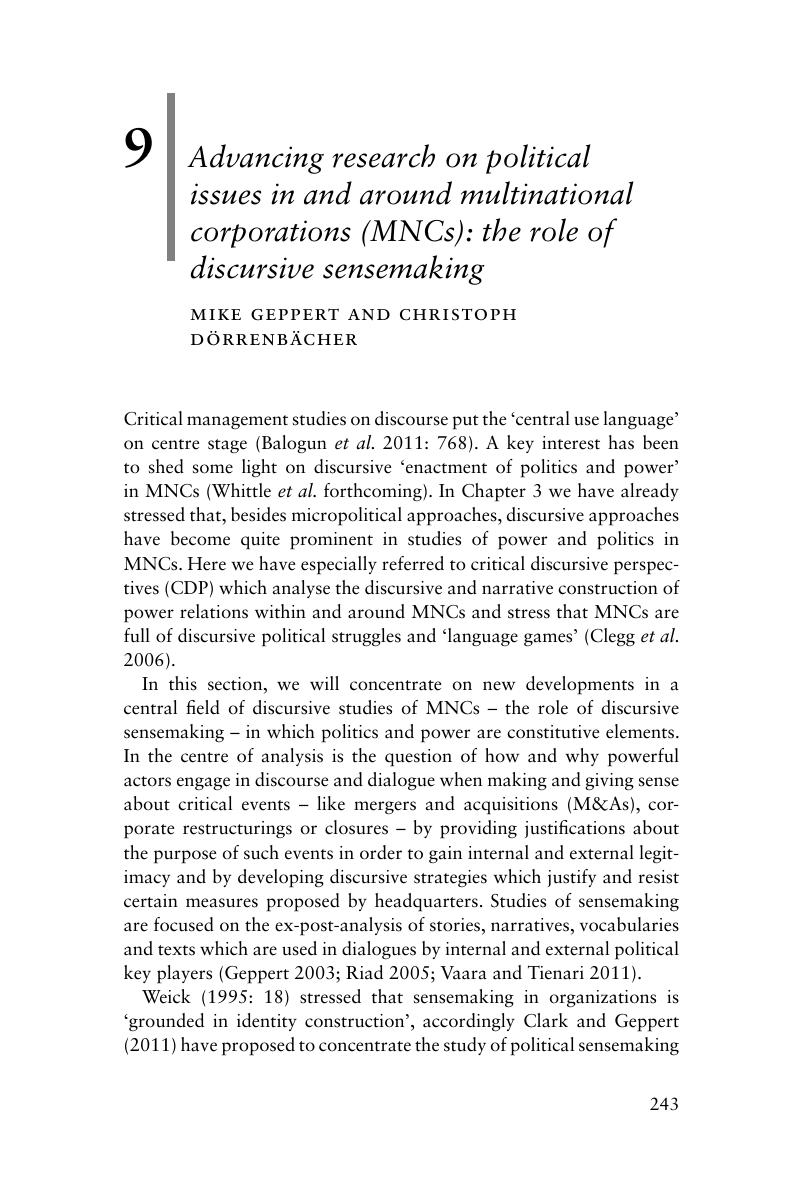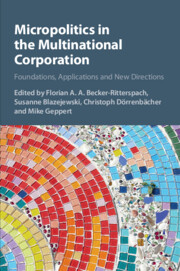Book contents
- Micropolitics in the Multinational Corporation
- Micropolitics in the Multinational Corporation
- Copyright page
- Contents
- Figure
- Tables
- Contributors
- Foreword
- 1 Introduction
- Part I Foundations of politics, power and conflict in MNCs
- Part II Seminal contributions
- Part III Analytical tools and applications
- Part IV Reflections and new directions for research
- 9 Advancing research on political issues in and around multinational corporations (MNCs): the role of discursivesensemaking
- 10 Zooming in onpoliticking and issuesellingtactics as new research directions for the study ofmicropolitics in multinational corporations (MNCs)
- 11 Advancing research onmicropolitics in multinational corporations (MNCs): an éliteperspective
- 12 Micropolitics in emerging market multinational corporations (EMNCs) as a field of new research
- Index
- References
9 - Advancing research on political issues in and around multinational corporations (MNCs): the role of discursivesensemaking
from Part IV - Reflections and new directions for research
Published online by Cambridge University Press: 05 June 2016
- Micropolitics in the Multinational Corporation
- Micropolitics in the Multinational Corporation
- Copyright page
- Contents
- Figure
- Tables
- Contributors
- Foreword
- 1 Introduction
- Part I Foundations of politics, power and conflict in MNCs
- Part II Seminal contributions
- Part III Analytical tools and applications
- Part IV Reflections and new directions for research
- 9 Advancing research on political issues in and around multinational corporations (MNCs): the role of discursivesensemaking
- 10 Zooming in onpoliticking and issuesellingtactics as new research directions for the study ofmicropolitics in multinational corporations (MNCs)
- 11 Advancing research onmicropolitics in multinational corporations (MNCs): an éliteperspective
- 12 Micropolitics in emerging market multinational corporations (EMNCs) as a field of new research
- Index
- References
Summary

- Type
- Chapter
- Information
- Micropolitics in the Multinational CorporationFoundations, Applications and New Directions, pp. 243 - 254Publisher: Cambridge University PressPrint publication year: 2016
References
- 2
- Cited by



